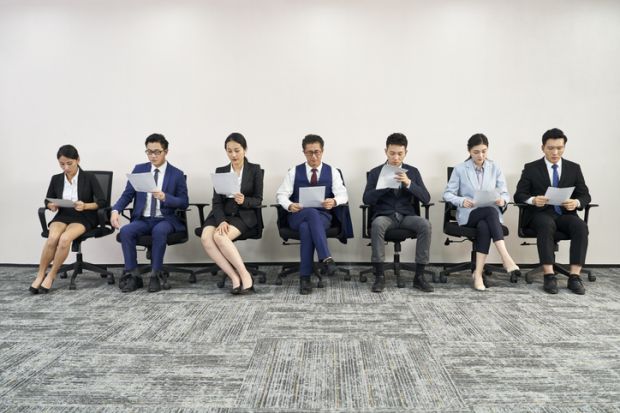A study has cast doubt on the idea that a journal’s research quality can be undermined by editorial favouritism, although some editors admitted that they “loosened standards” for colleagues and junior scholars expressed particular resistance to the practice.
Researchers examined nearly 924,000 papers that were published by educational journals in mainland China from 2001 to 2019, and conducted 80 interviews with journal editors, authors and peer reviewers to explore whether choosing manuscripts by authors from the same institution that the journal is affiliated to has damaged its quality and academic impact.
Analysis indicated that there was no strong evidence to show that “insider” papers performed more poorly in terms of citations and impact.
The study was published in a journal associated with a university, the Journal of East China Normal University (Education Sciences).
Previous research has associated favouritism towards colleagues with enhanced efficiency, but it is often perceived by authors and readers to undermine editorial standards. An analysis of 19,000 papers published in top Chinese economics journals in China between 2001 and 2012 found the citation and download rates of so-called guanxi articles were lower than those of “unconnected” authors, by 15.2 per cent and 8.3 per cent respectively.
“The fundamental cause of different conclusions lies in different sampling and research areas,” said Li Yishan, a co-author of the study and a PhD student in the Faculty of Education at East China Normal University (ECNU). “Journals in various disciplines have their own attitudes and way to deal with manuscripts by ‘insiders’.”
The ECNU study also finds that academics’ views on insider papers may vary according to career stage. In general, results of the anonymous interviews showed that senior researchers tended to be more neutral, while junior researchers held more negative views about favouritism towards colleagues.
But all authors said that they did not take this issue into consideration when downloading or referring to a single study.
“Research experience is linked with benefits in the market of academic knowledge. Compared to senior researchers, junior researchers face a harder and more risky publishing journey, which led to less neutral views on insider papers,” Mr Li said, mentioning that his own study was refused 13 times in three months before it was finally accepted.
However, according to the paper, most reviewers admit that they “loosen the standards slightly” for papers from insiders if they are under single-blind peer review, underlining the importance of double-blind peer review.
“The vitality of a journal stems from publishing high-quality papers,” Mr Li said. “An important suggestion based on our study would be improving blind peer review and editors’ ability to evaluate submissions.
“Increasing the chance of quality papers to be published with a fair attitude towards all manuscripts can provide the force to drive educational journals in China forward.”
Register to continue
Why register?
- Registration is free and only takes a moment
- Once registered, you can read 3 articles a month
- Sign up for our newsletter
Subscribe
Or subscribe for unlimited access to:
- Unlimited access to news, views, insights & reviews
- Digital editions
- Digital access to THE’s university and college rankings analysis
Already registered or a current subscriber? Login









